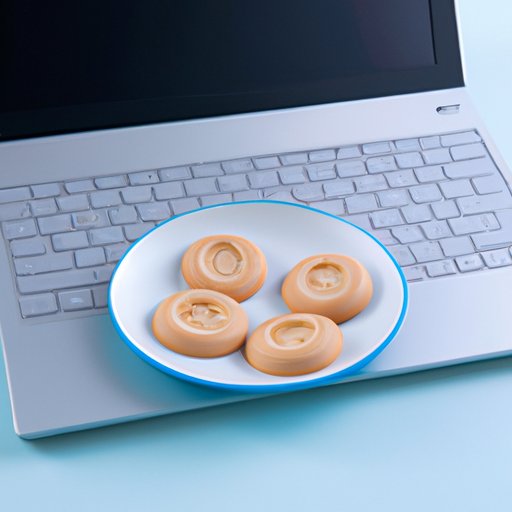Introduction
In the world of web browsing, computer cookies are an important part of the experience. But what exactly are they, and why do they exist? In this article, we’ll explore the definition of computer cookies, how they work, and their advantages and disadvantages. We’ll also look at the impact that computer cookies have on user privacy and the different uses for them.
A Beginner’s Guide to Cookies on Computers
To understand computer cookies, it’s important to first know what they are. Computer cookies are small pieces of data stored by web browsers on a computer or mobile device. They are used by websites to track user activity and preferences, as well as to store information such as login details and settings.
Computer cookies work by sending a request to a website’s server each time a new page is visited. The server then sends back a cookie, which stores information about the user’s activity on the website. This allows the website to remember the user’s preferences, such as settings and preferences, and to provide a more personalized experience.
There are two main types of computer cookies: session cookies and persistent cookies. Session cookies are temporary and are deleted when the browser is closed. Persistent cookies, on the other hand, remain stored on the computer until they expire or are manually deleted.

How Cookies Help Enhance Your Web Browsing Experience
Cookies are an important part of the web browsing experience, as they allow websites to provide a better user experience. For example, cookies can be used to remember logins, preferences, settings, and more. This means that users don’t have to enter their details every time they visit a website, allowing them to navigate quickly and easily.
Cookies can also be used to personalize content, such as providing relevant ads or suggesting products and services based on previous visits. This helps to make the web browsing experience faster, easier, and more enjoyable.
Exploring the Advantages and Disadvantages of Computer Cookies
While there are many advantages to using cookies, there are also some potential drawbacks. It’s important to understand both the advantages and disadvantages of computer cookies before deciding whether or not to use them.
Advantages of computer cookies:
- Allow websites to remember user preferences and settings
- Provide a more personalized experience
- Help websites load faster
- Allow websites to track user activity
Disadvantages of computer cookies:
- Can be used to track user activity without their knowledge
- Can lead to targeted advertising
- Can slow down web browsing
- Can be used to store sensitive information

What You Need to Know About Computer Cookies and Privacy
When it comes to computer cookies and privacy, it’s important to know what data is being stored. While most computer cookies are harmless, some can contain personal information such as names, addresses, and email addresses. It’s important to understand what data is being collected and how it is used.
It’s also important to be aware of the potential privacy concerns with cookies. Some cookies can be used to track user activity without their knowledge, which can lead to targeted advertising or other unwanted activities. It’s important to be aware of the potential risks and to take steps to protect your privacy.

An Overview of Computer Cookies and Their Uses
Computer cookies can be used for a variety of purposes, from helping to make websites more efficient to tracking user activity. It’s important to understand the different uses for cookies and how they can be managed. Most web browsers allow users to manage their cookies, such as disabling or deleting them, as well as setting certain restrictions.
It’s also helpful to be aware of the different types of cookies and how they are used. There are first-party cookies, which are set by the website you are visiting, and third-party cookies, which are set by other websites. It’s important to understand the differences between these types of cookies and how they can affect your privacy.
Conclusion
Computer cookies are an important part of the web browsing experience, offering a range of benefits such as personalized content and faster loading times. However, it’s important to understand the potential risks associated with cookies and how to manage them. By understanding how cookies work and taking steps to protect your privacy, you can enjoy the benefits of cookies without sacrificing your security.


